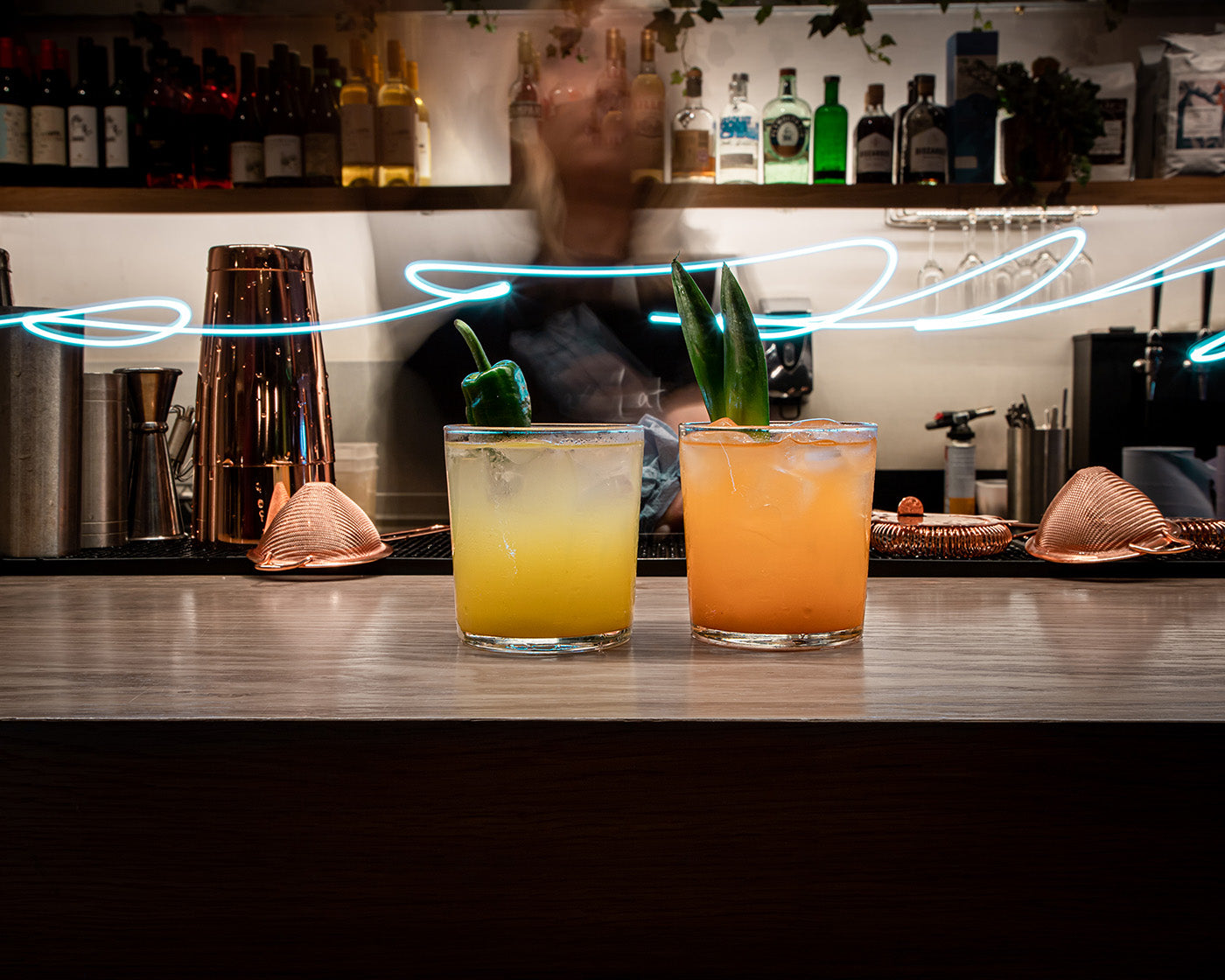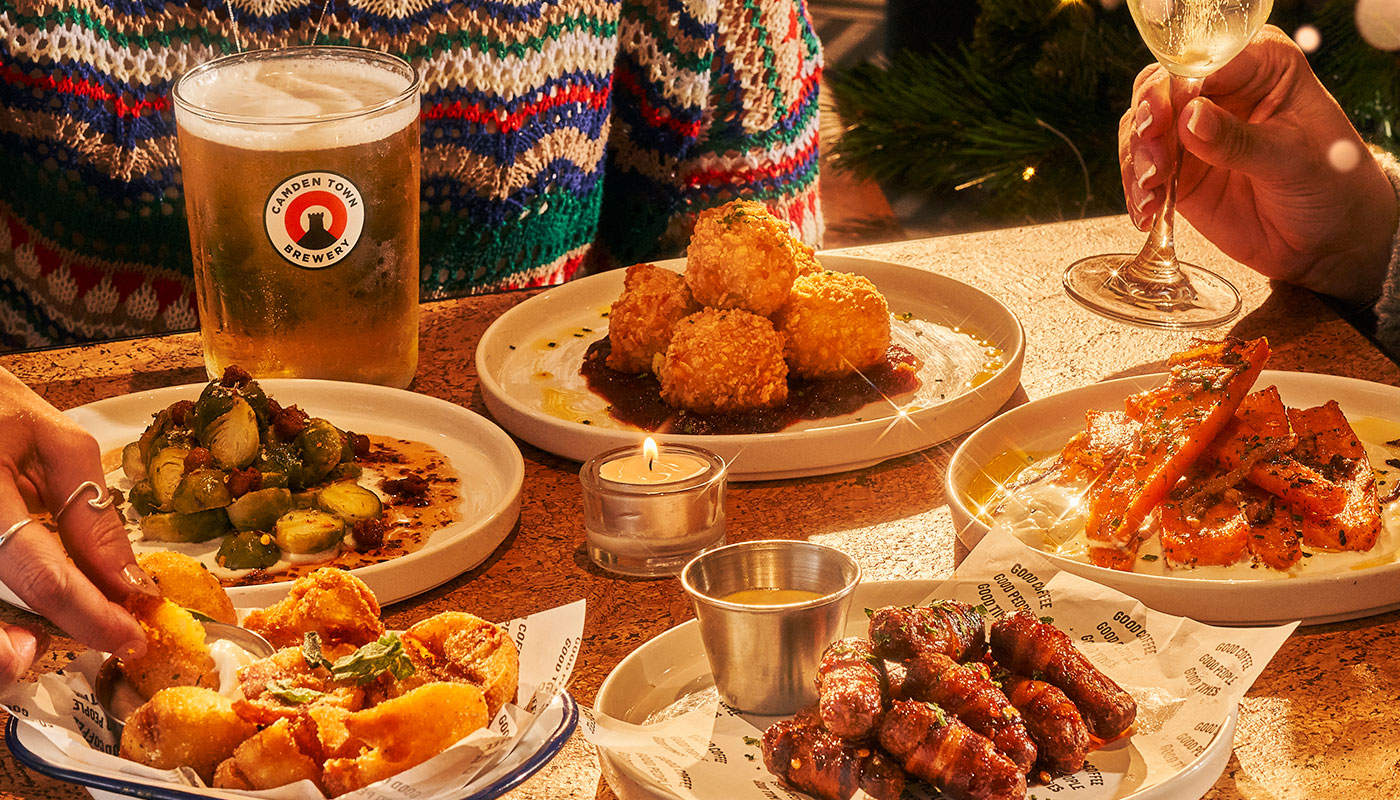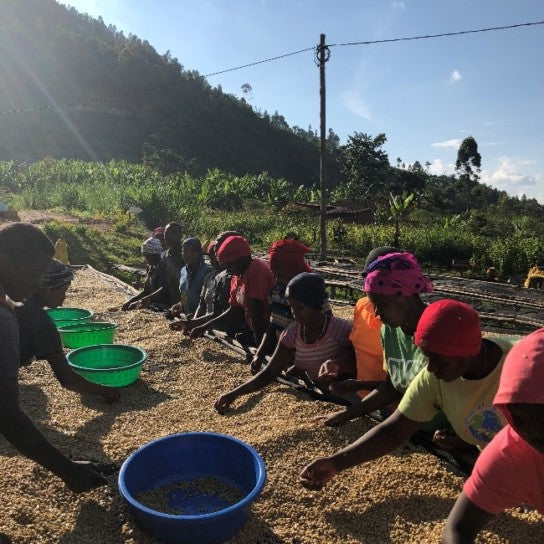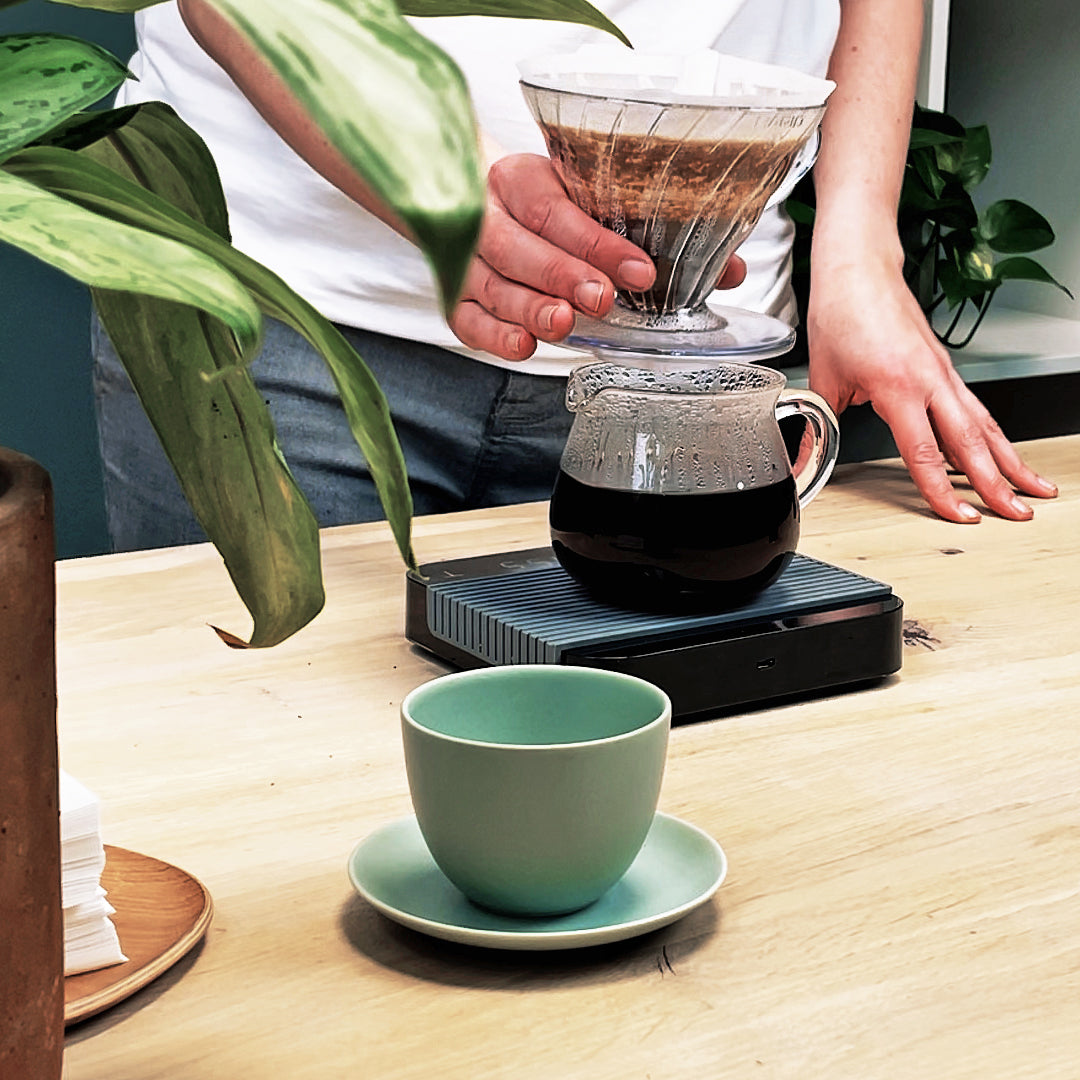Rwanda, also known as The Land of A Thousand Hills, is the home of around 400,000 smallholder coffee farms, ranging from <1 to 4 hectares in size. Coffee was first introduced to the country by Belgian Colonists in the 1930s, where it was grown successfully until the 1980s when there was a local price collapse, shortly followed by the 1994 genocide. With the aid of coffee production the economy has been reconciled. Substantial investment in educations have seen the arrival of micro origin speciality producers and prices have risen accordingly.

Kinini means “this big thing right here”, and is the name of the washing station and cooperative established in 2016 in the town of Kinini.
Kinini coffee was set up by Malcolm Clear and Jacquie Turner alongside the charity “A New Beginning Rwanda”. The charity helps widows and orphans displaced by the 1994 genocide. Fundraising has aided the building of a school as well as a health posts in the province. 10% of the price of coffee export/import goes back into the charity. 85% of the members of The Kinini Cooperative are women. Initial investment into the Kinini Washing station involved over 500,000 coffee seedlings, as well as reinforcing and creating infrastructure, training and advice; this was alongside the building of the washing station.
The Kinini cooperative utilises tech in the form of satellite imagery to spot disease and pest infestation early, as well as weather apps to keep growers informed. Farmers took time to get onboard with Kinini but are now starting to reap the benefits of higher yields and quality lots, resulting in more income!
We are excited to be showcasing two coffees from the Kinini Washing station. The main difference between the coffees is in the post-harvest processing method, a difference which impacts the final flavour profile of the cup. Post-harvest processing is essentially how the green coffee seed is removed from the coffee cherry and dried to the raw green bean that the roasters receive ready to be turned into the roasted coffee beans that go in to our grinders. The Washed process coffee sits in our Hometown (or house) range and the Natural in our Adventure (or guest) range. The processes are explained in more detail below.

For the Kinini washed coffee, coffee cherries are sorted on shaded, raised beds and cleaned by hand before being taken to the initial floating tank and being de-pulped. They are taken to the Kinini washing station, where they are further sorted and cleaned. They are then put through multiple fermentation and washing processes before controlled sun drying in their parchment layer for around 14 days. Once dry, the coffee is sent to the dry mill for removal of the parchment layer, sorting, grading and packing before shipping. In the cup you’ll find balanced brightness, sweetness and caramels.
For the Kinini naturally processed coffee, the coffee cherries are spread out and dried for 48 days on raised beds to a maximum depth of two inches. They are turned regularly to avoid over fermentation and allow even drying. Allowing the green beans to dry whilst still inside their cherry pulp allows for more flavours to permeate through during the drying process, giving more body and wilder flavour notes in the final cup! Once dried to the correct moisture content, around 11%, the dried fruit is removed at the dry mill. Here, further sorting and grading of the raw green coffee takes place before packing into hessian sacks. In this cup look for juicy body and fruity flavours.

Image credits to Kinini Coffee and D R Wakefield







